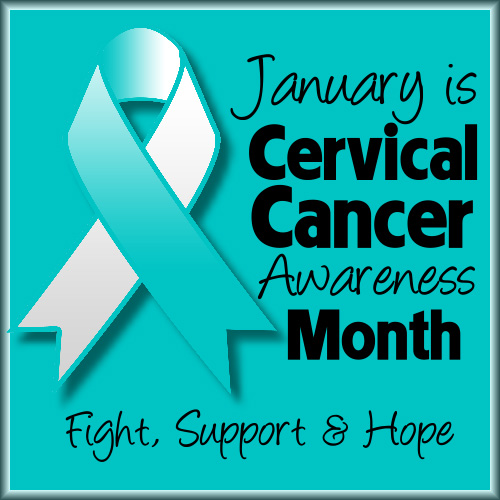
Cervical Health Awareness Month is a chance to raise awareness about how women can protect themselves from HPV (human papillomavirus) and cervical cancer. HPV is a very common infection that spreads through sexual activity. It’s also a major cause of cervical cancer. About 79 million Americans currently have HPV. Many people with HPV don’t know they are infected.
The good news?
- The HPV vaccine (shot) can prevent HPV. Cervical cancer can often be prevented with regular screening tests (called Pap tests) and follow-up care. Cervical cancer screenings can help detect abnormal (changed) cells early, before they turn into cancer. Most deaths from cervical cancer could be prevented by regular Pap tests and follow-up care.
How can Cervical Health Awareness Month make a difference?
This emphasis serves as an opportunity to spread the word about important steps women can take to stay healthy. Here are just a few ideas:
- All women should get their well-woman visit this year. This visit should include a regular Pap test, beginning at age 21.
- Make sure women know that the health care reform law covers well-woman visits and cervical cancer screening. This means that, depending on their insurance, women can get these services at no cost to them.
- Talk to parents about how important it is for their pre-teens (age 11 or 12) to get the HPV vaccine. Both boys and girls need the vaccine.
Teens and young adults also need to get the HPV vaccine if they didn’t get it as pre-teens.
Women up to age 26 and men up to age 21 can still get the vaccine.
Thanks to the health care reform law, you and your family members may be able to get these services at no cost to you. Check with your insurance company to learn more.


